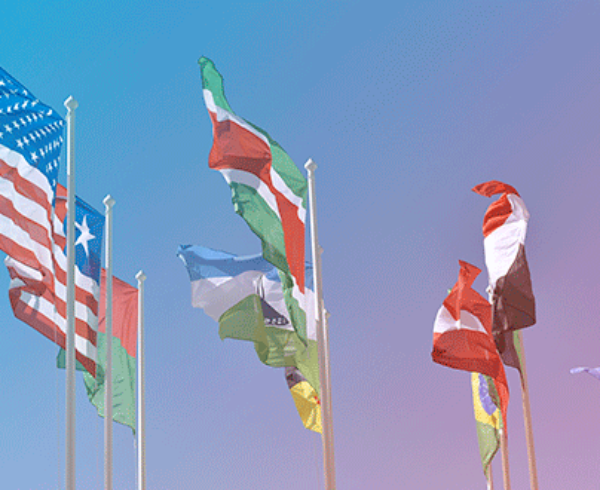What will work trips look like after the pandemic? Expect travel industry change to include fewer fees, cleaner environments, more mergers and growth in unexpected areas.
Change was the operative term in 2020. The COVID-19 pandemic brought change to how we work, how we relax, how we entertain, how we live — and how we travel. But what aspects of 2020’s travel industry change will stay with us in 2021 and beyond?
While some characteristics of business travel will return to normal, others have been touched by the pandemic in ways that make it impossible to go back. Executives responsible for making travel-related decisions and investments will want to understand these shifts so that they can increase their companies’ travel-related ROI in the years to come. Here’s a look at 6 changes in the travel industry that are likely to stay with us for the foreseeable future.
1. Watered-Down Travel Insurance
Individuals are often offered travel insurance policies when booking trips. Similarly, companies may have insurance built into their travel programs. In the past, many of these policies have included cancel-for-any-reason provisions that allowed you to get at least a partial refund if you couldn’t follow through with your itinerary. Those catch-all provisions are no longer as generous — the partial refunds are now a smaller percentage of the full cost. And, in some cases, these catch-all provisions are hard to find at all.
In general, expect travel insurance to have more limitations when you read the fine print. This may seem like a cynical change by insurance providers during a pandemic, but it’s really a dire economic decision. With so many unexpected changes to travel schedules, insurance providers can’t stay in business if they continue to offer cancel-for-any-reason products.
As an Executive, ensure that your travel Managers understand how changes to cancel-for-any-reason policies may affect your travel budget and its bottom line.

2. More Mergers, Fewer Options
The travel industry has seen mega mergers aplenty in recent years. Delta-Northwest, Continental-United, American-US Airways, and Marriott-Starwood are among the big names that have joined forces. But these mergers aren’t necessarily good news for Travelers.
Anytime two large travel vendors merge, there’s less competition in the industry and Travelers are left with fewer options when shopping their business around. The pandemic is only going to accelerate the proliferation of mergers in the industry. The same is true for companies that send their team members on the road for work. Fewer options means higher prices, generally speaking. Small hotels are going to be especially susceptible to acquisition. There simply hasn’t been enough business for smaller hotels to survive through this downturn.
As your company’s contracts and partnerships expire, carefully analyze this new landscape so that you can get the best deal — and save as much as possible on your travel spend.
There’s a new niche of travel agent that possesses knowledge of COVID-19 and that specializes in helping Travelers navigate the muddied waters of traveling in the age of coronavirus.
3. Fee Elimination
Let’s be honest: Travel vendors have spent the past few decades looking for ways to nickel and dime customers out of money. We’ve seen airline fees spiral out of control. Hotels have introduced new parking fees and the now ubiquitous “resort” fee.
No one likes these fees. Which is why their disappearance was one of the few silver linings of the COVID-19 crisis.
Look for these fees to remain absent in 2021 and beyond. It will take years for the travel industry to fully recover from the pandemic. Lower prices and fee eliminations will be used by airlines, hotels and car rental companies to induce both business and leisure Travelers back onto planes, onto hotel properties and into rental cars. Once the travel industry has fully recovered, perhaps these vendors will again have the confidence and stability to look for ways to begin nickeling and diming again. Until then, enjoy a travel industry relatively free of fees.
In the short term, this could make it easier for your company to invest in business trips. Fewer fees mean lower overall prices. Lower prices make it easier for your company to get the return it expects for its investment in travel.
4. Virtual Reality, Augmented Reality and Online Meetings
New virtual reality and augmented reality technologies are making it easier for hotels and other travel-related companies to sell their services. Virtual reality and augmented reality are used to give Travelers an opportunity to experience a destination before booking their trips. This is helpful for business Travelers who need specific amenities or proximity to certain destinations when travelling. It’s also a nice-to-have for Travelers who just want to better understand what the experience is like at a hotel before choosing to stay there.
New technologies have also made online meetings more feasible in 2021 and beyond. Yes, almost all professionals left 2020 with a certain amount of Zoom fatigue, but last year did demonstrate to many companies that virtual meetings can be more effective than previously thought. Expect online meetings to continue to replace work trips to some extent, even as business travel picks back up in 2021.
Executives will now get to decide what meetings can be handled virtually using new and improved technologies — and what meetings still require face-to-face interaction.
5. COVID-19 Specialists
A lot goes into travel right now. First and foremost, Travelers want to know that they will be safe, no matter the destination. And, second, Travelers need to know if they legally can visit a certain destination. Complicating matters is this: The travel landscape is constantly changing in response to changing government policies and rises and falls in COVID-19 cases.
Enter the COVID-19 specialist.
There’s a new niche of travel agent that possesses knowledge of COVID-19 and that specializes in helping Travelers navigate the muddied waters of traveling in the age of coronavirus. Only time will tell if this new breed of COVID-19-focused travel agent/specialist/advisor will last beyond the pandemic. But, for the time being, these travel professionals are playing a key role for both business and leisure Travelers. Executives may want to consider adding a niche travel specialist to their administrative teams, especially if the pandemic has made a disproportionate impact on their companies.

6. Touchlessness, Cleanliness and Sanitization
Airports, hotels and other travel environments have been creative in finding ways to serve customers in a touchless manner. This required the introduction of new check-in terminals and other infrastructure and processes, which won’t be going away anytime soon. Travelers can expect touchless experiences in 2021 and beyond.
Travel vendors have also placed a heavy emphasis on cleanliness and sanitization in the midst of the pandemic. Again, new cleaning and sanitization processes and procedures aren’t going anywhere. Even before COVID-19, airlines, cruise ships and hotels were known as super-spreader spaces where it was easy to pick up a nasty cold or a virus like the flu.
These intensive cleaning and sanitization measures were perhaps overdue in the travel world. Again, if you’re looking for good news in the midst of the pandemic, these new measures should be a welcome development among Travelers. Executives should welcome them, too, as they will only support the duty of care responsibility that companies hold to their Travelers.
Travel Safely in 2021 With JTB
At JTB Business Travel, we evolve along with the travel industry so that we can always deliver outstanding service to our clients. We recently launched a Resource Hub that is focused on helping your business travel safely during the COVID-19 pandemic. Behind every service we offer and each recommendation we make is a common-sense approach to business travel.
Contact us today and learn more about how we can support your business travel needs.














Leave a Comment